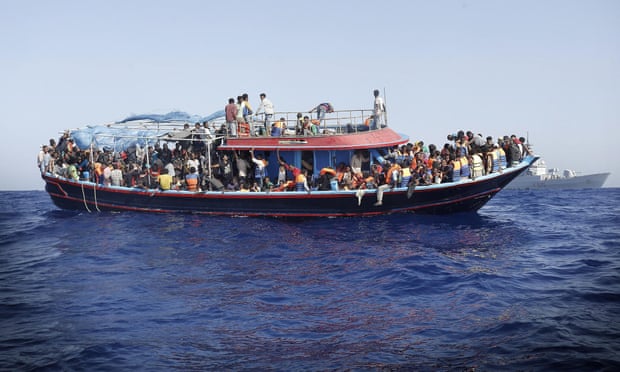The Migratory policy of a State can have a significant impact on the relationships between the actors in the international system, for example between the country that adopts the measure, and the State or States which expel migrants. The position taken by a country on this subject can strengthen bonds between the parties involved, such as investing in infrastructure that optimizes free movement of border transit with neighbor countries or on the contrary it produces conflicts, for example the expulsion or deportation of anyone who belongs to a certain nationality in a systematic manner without satisfactory reason or explanation.
The overall objective of a migratory policy is to act on the influx of migrants that are trying to enter a country or the flow of people that are trying to leave. The argentine author Lelio Marmora classifies these policies in 4 categories: "retention, promotion, regulation, recover/ incorporation” (Marmora; 2004; p. 99), you have to keep in mind these policies are not exclusive or exclude any other political options. For a country to take one of these positions, it must define its migratory policy based on its interests and needs, but it is very important to take into account is how each State sees itself, how it establishes its identity, because this will influence its view of the world and how to act on transnational phenomenon like immigration, and finally this will condition its decisions. In other words, needs and interests are conditioned by how a State defines its identity and its role in the international system; this is valid for any state and its view of any international situation. In the case immigrants are perceived differently by each actor; and because of this every State defines migrants differently to serve them best.
Something you must to add to the mix, is time, it’s another factor that affects perception on migrants, or on any international issue. An actors position on any question my change over time do to its experience. United States of America views immigrants very differently at the beginning of the 1900’s, than how they perceive them now. And finally the last ingredient is the location of a State its fundamental, migrants chose some states over others; do to means of transport to get there, climate, geo-economics reasons… etc. So we can conclude that time, space and identity, determines need and interest of a State, and in this case how to manage migrants. So because of this we can observe a very dynamic world in constant change where in many instances policy and/or laws tends to fall behind the true necessities of a state and here’s where the problems starts. Something very important you can infer from this is nothing last forever, everything end sooner or later or transformers in to something else, this is true with any international subject like immigration.
Guys check out my Video in the Subject on you tube https://www.youtube.com/watch?v=sxwjH4TF7NE

No hay comentarios:
Publicar un comentario